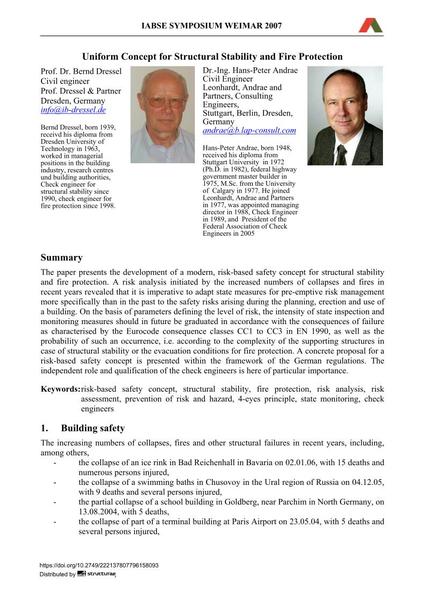Uniform concept for structural stability and fire protection

|
|
|||||||||||
Détails bibliographiques
| Auteur(s): |
Bernd Dressel
Hans-Peter Andrä |
||||
|---|---|---|---|---|---|
| Médium: | papier de conférence | ||||
| Langue(s): | anglais | ||||
| Conférence: | IABSE Symposium: Improving Infrastructure Worldwide, Weimar, Germany, 19-21 September 2007 | ||||
| Publié dans: | IABSE Symposium Weimar 2007 | ||||
|
|||||
| Page(s): | 314-315 | ||||
| Nombre total de pages (du PDF): | 11 | ||||
| Année: | 2007 | ||||
| DOI: | 10.2749/222137807796158093 | ||||
| Abstrait: |
The paper presents the development of a modern, risk-based safety concept for structural stability and fire protection. A risk analysis initiated by the increased numbers of collapses and fires in recent years revealed that it is imperative to adapt state measures for pre-emptive risk management more specifically than in the past to the safety risks arising during the planning, erection and use of a building. On the basis of parameters defining the level of risk, the intensity of state inspection and monitoring measures should in future be graduated in accordance with the consequences of failure as characterised by the Eurocode consequence classes CC1 to CC3 in EN 1990, as well as the probability of such an occurrence, i.e. according to the complexity of the supporting structures in case of structural stability or the evacuation conditions for fire protection. A concrete proposal for a risk-based safety concept is presented within the framework of the German regulations. The independent role and qualification of the check engineers is here of particular importance. |
||||
